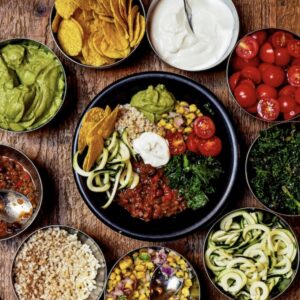
However, before diving into this dietary shift, it’s essential to be well-informed. In this article, we will explore four important things you need to know about starting a vegetarian diet, providing you with the knowledge and tools to embrace this lifestyle.
Understanding the Basics
When transitioning to a vegetarian diet, it’s crucial to understand what it entails. A vegetarian diet primarily consists of plant-based foods, including fruits, vegetables, legumes, whole grains, nuts, and seeds. It eliminates meat, poultry, fish, and seafood from the diet. However, there are different variations of vegetarianism, such as lacto-ovo vegetarian (includes dairy and eggs), lactovegetarian (includes dairy but excludes eggs), and vegan (excludes all animal-derived products). By determining which type aligns with your personal values and health goals, you can tailor your dietary choices accordingly.
Meal Planning and Recipe Exploration
To make your vegetarian journey enjoyable and sustainable, invest time in meal planning and recipe exploration. Begin by exploring new plant-based recipes and experimenting with different flavors and ingredients. The abundance of online resources, cookbooks, and vegetarian communities can provide inspiration and support. You can book individual vegetarian meal prep with personal chefs. This holistic approach will offer you satisfying and satiating meals made just for you.
Meal planning ensures you have a well-balanced diet and reduces the likelihood of relying on processed vegetarian alternatives. Incorporate a diverse range of fruits, vegetables, whole grains, and plant-based proteins into your meals. By being prepared, you’ll find it easier to stick to your vegetarian lifestyle and discover exciting new dishes along the way.
Meeting Your Nutritional Needs
One common concern when starting a vegetarian diet is obtaining adequate nutrition. However, with proper planning, a well-rounded vegetarian diet can provide all the necessary nutrients your body needs. It’s important to focus on consuming a variety of plant-based foods to ensure you’re getting sufficient protein, iron, calcium, vitamin B12, and omega-3 fatty acids.
Plant-based protein sources include legumes, tofu, tempeh, seitan, quinoa, and nuts. Incorporating iron-rich foods like spinach, lentils, and fortified cereals, along with calcium sources like leafy greens and fortified plant-based milk, will help meet your nutritional requirements.
For vitamin B12, which is mainly found in animal products, consider fortified foods or supplements. Additionally, include plant-based sources of omega-3 fatty acids, such as flaxseeds, chia seeds, and walnuts, or consider algae-based supplements.
Nurturing a Mindful Approach
Transitioning to a vegetarian diet extends beyond food choices. It encourages a mindful and conscious approach towards your health, the environment, and animal welfare. Educate yourself about the environmental impact of the meat industry and the benefits of plant-based living.
Embrace the opportunity to connect with like-minded individuals through vegetarian and vegan communities, online forums, or local groups. Embracing a mindful approach includes being patient with yourself during the transition, acknowledging that it’s a learning process, and embracing progress over perfection. By nurturing a compassionate mindset, you can fully embrace the benefits of a vegetarian diet and inspire others along the way.
Remember, starting a vegetarian diet is a personal decision, and everyone’s experience will be unique. Embrace the process, be open to new culinary adventures, and enjoy the numerous benefits of a vegetarian lifestyle. Your actions can make a meaningful difference both for yourself and the planet.